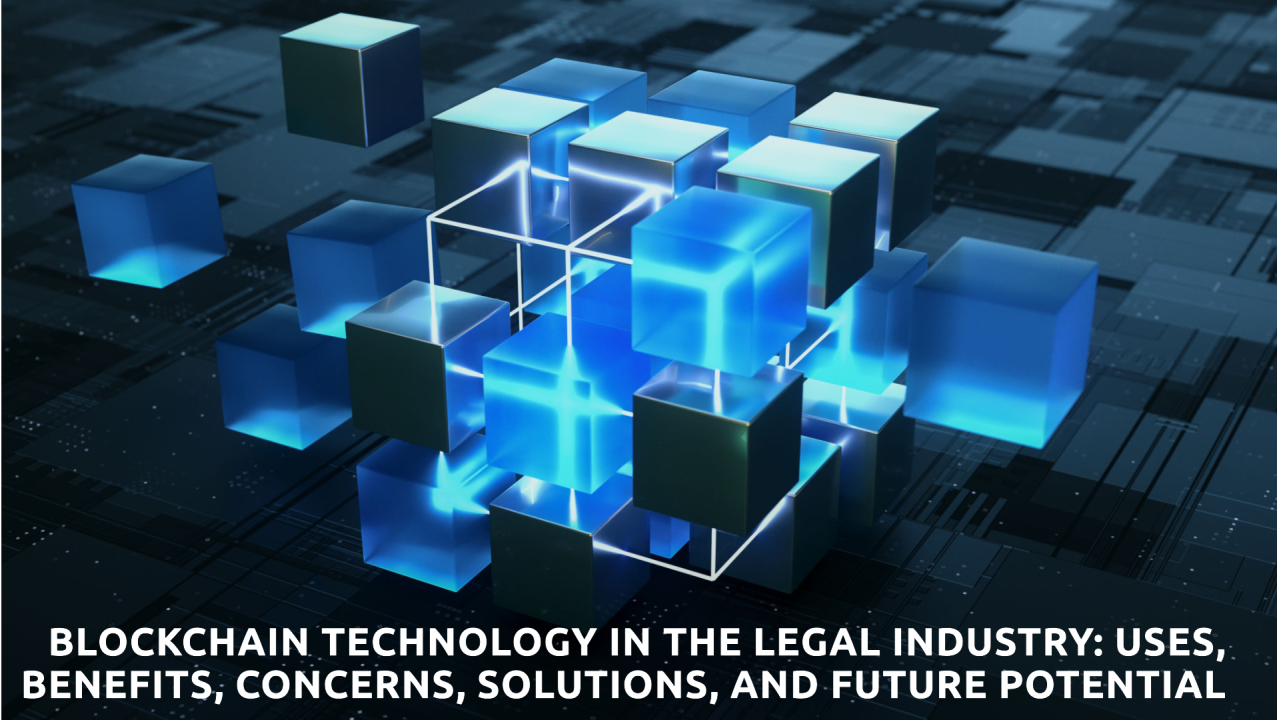
What Is Blockchain?
Think of blockchain as a huge digital ledger—a public notebook of sorts that records every transaction, agreement, or change immediately. Now, picture that ledger being reproduced across millions of computers, where anyone who has access can see each word that was entered. That’s blockchain technology: a decentralized, secure, immutable system where data is transparent, tamper-proof, and permanent. Originally developed for cryptocurrencies like Bitcoin, blockchain has since evolved and found applications across various industries—including the legal field.
Blockchain works by creating a digital “chain” of blocks, where each block contains information (such as a transaction or agreement). These blocks are linked in a way that makes it extremely difficult to change any information without everyone noticing. Think of it like writing with permanent ink on a public whiteboard—any attempt to alter something leaves an unmistakable mark, making sure everyone understands what’s changed.
5 Ways Blockchain is Disrupting the Legal Industry
Blockchain is rapidly becoming a lawyer’s new best friend, especially when it comes to refining processes that have long been slow, inefficient, or even subject to fraud. Here’s how it’s already making waves:
1. Smart Contracts
Imagine a vending machine: Insert money, select your snack, and the machine doles it out—no human required to review the transaction. And that’s how a smart contract works. These self-executing contracts automatically carry out contract provisions once certain conditions are met. For example, in a real estate transaction, a smart contract could grant access to an apartment once the tenant pays rent by the due date. No middlemen screwing things up—just results.
2. Source of Truth
One of the biggest problems in land titling is disputes over ownership. Blockchain has been employed in land registries in countries like Sweden and Georgia, allowing property titles to be cryptographically secure and immutable, providing immense protection against fraud.
3. Bulletproof Evidence
Maintaining the integrity of evidence is a challenge that lawyers face routinely. Blockchain allows legal documents, timestamps, and other evidence to be securely stored, ensuring their authenticity. In intellectual property cases, for example, blockchain can record the exact date a work was created, eliminating potential disputes about ownership.
4. Decentralized Dispute Resolution
Imagine resolving a conflict with even greater transparency and efficiency than traditional arbitration or mediation. Blockchain-based arbitration platforms take alternate dispute resolution to the next level by leveraging transparent, vote-based systems and automated smart contracts. These platforms can make resolving disputes—like small claims or cross-border business disagreements—faster, less expensive, and more impartial. By eliminating reliance on centralized arbitrators and creating immutable records of proceedings, blockchain brings a new level of trust and accessibility to dispute resolution.
Why Blockchain is a Game-Changer
Blockchain has a range of benefits that are hard to overlook:
- Transparency: Just like leaving the curtains open at home, blockchain guarantees that all parties in a transaction can confirm records without doubt. It’s an open book for all to read.
- Efficiency: Automating contracts and managing data securely reduces admin work for lawyers and clients alike, saving time.
- Security: Blockchain’s cryptographic structure makes it nearly impossible to hack or manipulate, ensuring sensitive legal data is safe from unauthorized access.
- Cost Reduction: By removing the need for intermediaries like escrow agents or auditors, blockchain can significantly reduce costs for both clients and lawyers.
Concerns and Challenges
Like any shiny new tool, blockchain isn’t without its challenges:
- Jurisdictional Limitations: Some jurisdictions may not legally recognize records or smart contracts written on a blockchain. It’s like having a passport that’s valid in some countries but not others. Until global legal recognition is established, blockchain’s full potential can’t be unlocked.
- Complexity: Blockchain isn’t plug-and-play. It requires a high level of training and technical expertise that not all law firms possess to implement it properly.
- Privacy Issues: Blockchain is traditionally transparent and may conflict with legal requirements for client confidentiality. Balancing private information with blockchain’s open nature is a delicate task.
- Scalability: Public blockchain networks face challenges processing large numbers of transactions, and the infrastructure to support massive scaling can be expensive.
How to Address the Challenges
Here’s how the legal community can tackle these hurdles:
- Legal Frameworks: Governments must craft laws that formally recognize blockchain-based records and agreements. This will help standardize its use across jurisdictions.
- Training: Law firms can invest in training their staff or partner with blockchain developers to ensure smooth integration into existing workflows.
- Hybrid Solutions: For sensitive legal matters, private or hybrid blockchains balance transparency with confidentiality.
- Scalable Technology: Layer 2 solutions—think of them as “side roads” for blockchain traffic—are emerging, allowing more transactions to be processed with less bandwidth.
Forward-Thinking Blockchain Applications in the Legal Industry
Blockchain’s potential doesn’t stop at the current use cases. Here’s a look at where it could go next:
- Smart Wills: Imagine a will that automatically distributes assets to beneficiaries once the testator’s death is verified, streamlining the estate administration process without the need for court involvement. This could soon be possible with blockchain technology.
- Universal Legal Identity: Blockchain could enable secure digital IDs for individuals, simplifying cross-border transactions and legal processes.
- Global Precedent Databases: A blockchain-based repository could store court rulings globally, allowing for fast, trusted access to case law and ensuring uniformity in legal interpretations.
Conclusion
Blockchain isn’t here to replace lawyers; it’s here to streamline their jobs, making them faster, more efficient, and more accurate. The potential impact of blockchain on the legal profession is clear. While some challenges remain, there is no question that blockchain will transform the legal world. The question isn’t whether it will change the profession, but how far it will go.
The future of law is looking bright, more efficient, and ready for the digital age—helped in part by tools like blockchain.
.




